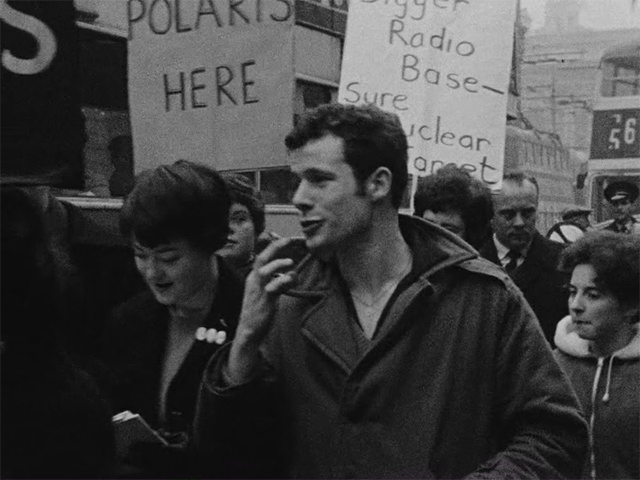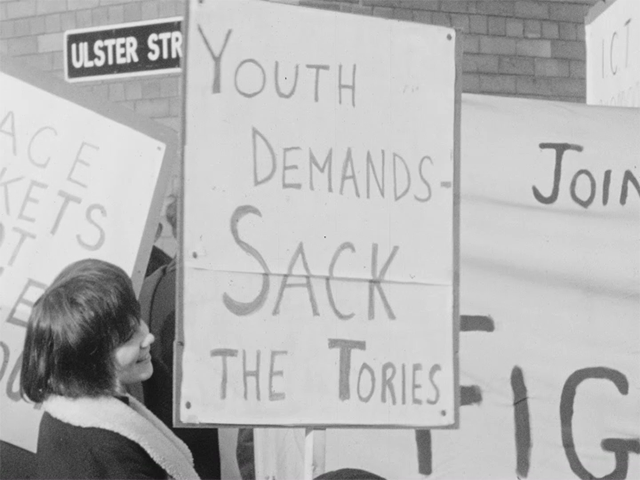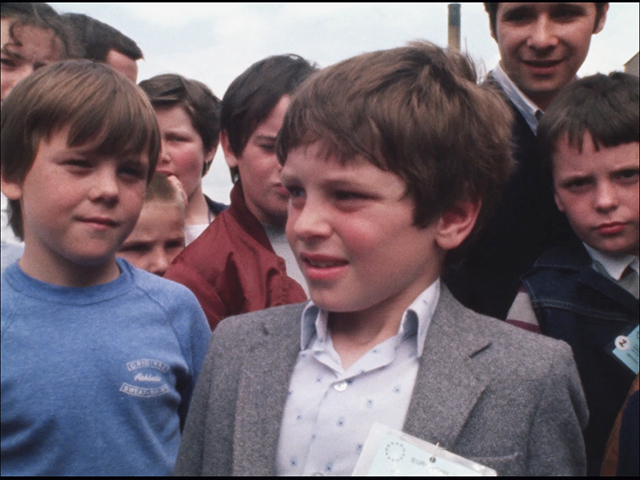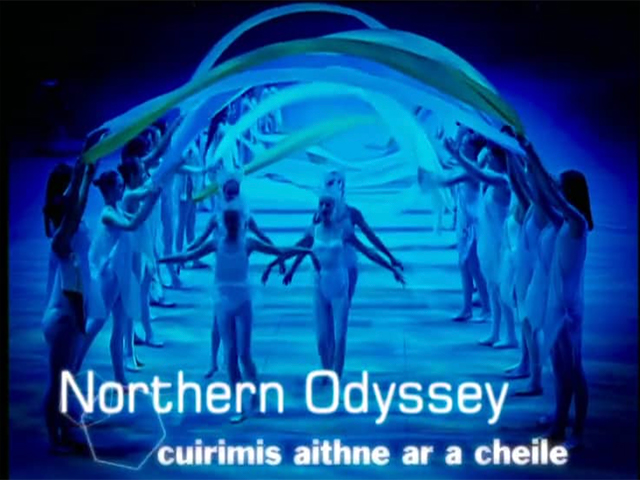Celebrating Good Relations Week 2021, 'Brighter Days' is a collection of clips and films from across the years, reflecting on the role of young people as changemakers in society. The collection highlights young people’s attitudes and opinions across the years, providing a valuable resource to those working with young people today, particularly with regard to cross-community projects and activities.
Film has a long memory, and the archive shows that 100 years ago, children were at the forefront of sectarian violence. In Agony of Belfast (c.1920), children are posing for the camera, re-enacting scenes from previous weeks and months, where the kidney pavers, known as ‘Belfast confetti’, were dug up and used as weapons. Troubled times indeed.
Back in the 1960’s, the Moderator of the Methodist Church also believed that young people were living in in uncertain times, with the threat of imminent nuclear attack. In his view, such led youths to look to groups such as the Mods and Rockers for comradeship.
Certainly, there was strong feeling about nuclear war, as evidenced by a CND Antinuclear March in Belfast in 1964.

Throughout the sixties the archive shows how young people became increasingly involved in protest movements, including an anti-apartheid protest at a hockey match in 1965 which featured the South African women’s team.
A Youth Unemployment Protest from 1964 features Cyril Toman, would go on to be a founding member of the People’s Democracy group.

Terence McDonald’s film, Benburb demonstrates how the Servite Priory gave a platform to the struggle of ideas erupting in a country eager for change. This clip shows their cross-community pageant, featuring a large cast of young people, which played to and audience of 10,000 people over a series of performances.
As violence escalated in the 1970’s, efforts to keep young people off the streets and out of trouble. Policeday (1976), shows how the power of dance was harnessed again, this time through a series of discos.
In 1982, researchers in Stranmillis College were trying to understand the impact of The Troubles on children’s lives. Counterpoint: Children of the Troubles (1982) reveals some of their findings, which, as well as focusing on violence in society, include other damaging factors such as child poverty.
In the 1980’s Chalk and Talk: An Educational Forum - Mutual Understanding (1987) discussed the role of education in creating tolerance within society.
Also during this decade, initiatives such as the Euro Children Holiday Scheme (1984) brought children abroad during the often-troubled summer months.

Throughout the decades, counter-culture has also brought
young people together, through movements like punk and the work of collectives
such as Giros.
Two years before the Good Friday Agreement, Speak your Piece (1996), part of Channel 4 Schools’ Off The Walls series, brought young people from Northern Ireland together to discuss issues of identity, ideology, and the question that was on everyone's mind in 1996 - is there a way to build a lasting peace?
The rest of the Off the Walls series is well worth watching, as it highlights a range of views, and focuses on young peoples’ perspectives. Some of the episodes contain input from teenagers in Jerusalem.
Off the Walls: Politics
Off the Walls: Identity
Off the Walls: Religion
Off the Walls: The Choice
Northern Odyssey: Diversity 21 (2001) is a celebration of Northern Ireland's rich cultural landscape and the diversity found here, including performances by the Ulster Youth Orchestra in the Odyssey Arena, Belfast.

Transitions (2002) is a short advertisement feature for series developed in partnership with UTV, the Youth Council of Northern Ireland and the North Eastern Education and Library Board, designed to foster understanding between young people and promote discussion as a way to work out difficulties.
Transitions: Downpatrick looks at the qualities that young people need to cultivate so that things can change.
The series also hears from Loughshore Youth Forum and West Belfast boys.
Belfast Community Circus School features in the series too, and some of their cross-community work can be seen within the Festival of Cultural Diversity, in 2001: a sign of a societal shift from the ‘two tribes’ model towards a more inclusive approach to building a more cohesive society.
Funding streams sought to underpin the Peace Process, supporting a range of projects and initiatives, as the Building on Peace series shows.
Through clips like these, and many more, the Digital Film
Archive provides an insight into societal shifts across the decades. As Good
Relations Week 2021 celebrates Brighter Days Ahead, this collection shows some
of the past foundations that have been laid for those ‘Brighter Days’.